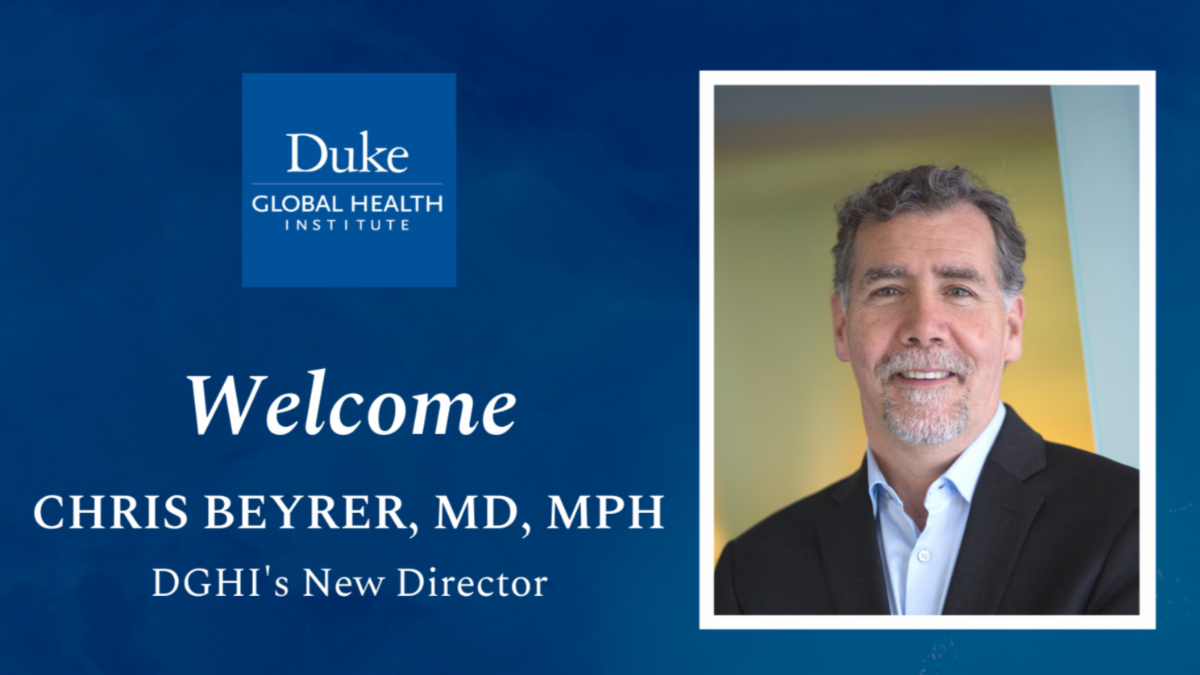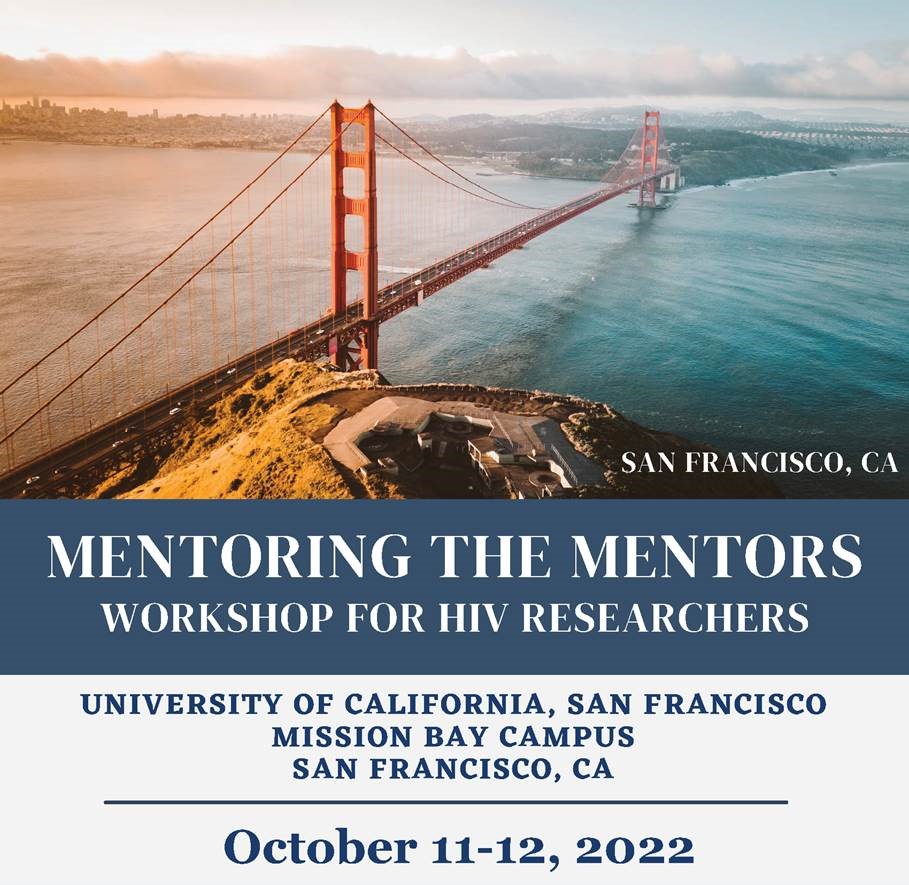Duke CFAR Newsletter - May 11, 2022
In this newsletter:
News from the CFAR
Upcoming Events
Funding Opportunities
| |
Coming up... HIV Vaccine Awareness Day and National Asian & Pacific Islander HIV/AIDS Awareness Day | |
|
May 18th is HIV Vaccine Awareness Day (HVAD), an opportunity to recognize the many volunteers, community members, health professionals, and scientists who are working together to find a safe and effective vaccine to prevent HIV. It is also a day to educate communities about the importance of HIV vaccine research. We are grateful to our many Duke CFAR and Duke Human Vaccine Institute members who are committed to HIV vaccine research!
May 19th is National Asian & Pacific Islander HIV/AIDS Awareness Day, which falls during Asian Pacific American Heritage Month. The observance raises awareness of the impact of HIV and AIDS, risk, and stigma surrounding HIV in the Asian Pacific Islander (API) community. Given the rise in violence against the API community, it is also important to stand in solidarity against racism.
| |
Dr. Christopher Beyrer, current associate director of the Johns Hopkins CFAR, named next director of the Duke Global Health Institute |  | |
Christopher C. Beyrer, MD, MPH, an internationally recognized epidemiologist who has worked on the front lines of HIV/AIDS and COVID-19 treatment and research, will become the next director of the Duke Global Health Institute (DGHI) on August 30. Dr. Beyrer comes from the Johns Hopkins Bloomberg School of Public Health, where he is the inaugural Desmond M. Tutu Professor of Public Health and Human Rights as well as a professor of epidemiology, nursing and medicine.
Beyrer has extensive experience leading international collaborative research and training programs related to infectious disease epidemiology and disease prevention. At Johns Hopkins, he directs the Training Program in HIV Epidemiology and Prevention Science, serves as associate director of the Center for AIDS Research and the Center for Global Health, and is the founding director of the Center for Public Health and Human Rights.
He is past president of the International AIDS Society, the world’s largest body of HIV professionals and has served as advisor to the U.S. President’s Emergency Plan for AIDS Relief (PEPFAR), the HIV Vaccine Trials Network, the National Institutes of Health’s Office of AIDS Research, the U.S. Military HIV Research Program, the World Bank, the World Health Organization, and the Open Society Foundations, among numerous other organizations.
“Chris Beyrer will be an outstanding and passionate leader of the Duke Global Health Institute,” said Provost Sally Kornbluth. “He is a researcher, a scholar, a teacher and an advocate whose work has made a difference around the world. There has never been a more important time for global health, and under Chris’s direction DGHI and Duke will continue to be a leader in research, education and service to society.”
We are excited to welcome Dr. Beyrer to Duke and the Duke CFAR!
Read more about Dr. Beyrer and his appointment.
| |
Dr. Shanti Narayanasamy reflects on redefining the relationship between race and medicine | |
|
Dr. Shanti Narayanasamy is a prior CFAR Pilot award recipient for her research, "Tackling a Neglected HIV-Associated Infection - A Validation Study of the IgG and IgM Serological Responses to Talaromycosis." But recently, in addition to her work addressing talaromycosis, Dr. Narayanasamy has pivoted some of her research to explore how race influences medical professionals' practices.
Narayanasamy is on the Global Health Pathway for Residents and Fellows, which is funded by the Hubert-Yeargan Center for Global Health. When Narayanasamy was in medical school over a decade ago, she was taught to associate particular diseases with certain races, without really knowing why. It was only when she began her master’s in global health at Duke that Narayanasamy started to explore how race influences medical professionals’ practices through her current research project and thesis.
“My current work was informed by my personal confusion about race and disease,” she said. “I started to unpack these ideas myself, and really try to understand that relationship between race and genetics, race and biology, race and disease.” Her project is a mixed-methods study conducted at Duke that uses surveys and interviews to investigate how healthcare professionals think of race and use it in their practice. Narayanasamy said that both quantitative and qualitative data are important in what she and other researchers want to gain from this project. The project findings will eventually be presented to the School of Medicine. Narayanasamy hopes to have two main outcomes: to use the findings as baseline data to develop educational materials for physicians and to encourage healthcare professionals all over the world to continue having open dialogue on this topic.
Read more about Dr. Narayanasamy and her research.
| |
Join the Inter CFAR Substance Use Research Community (I-SURC) for an Implementation Science Panel Discussion
Tuesday May 24, 2022 | 12-1pm ET | Zoom
| |
Learn about implementation science, the CFAR Implementation Science Hubs, and implementation science studies focusing on HIV and substance use with the following presenters:
- Elvin Geng, MD, MPH, Washington University
- Larry Hearld, PhD, University of Alabama at Birmingham
- Emily C. Williams, PhD, MPH, University of Washington
- Hansel Tookes, MD, MPH, University of Miami
Register for the Zoom panel.
|
Mentoring the Mentors Workshop
October 11-12, 2022 | San Francisco, CA
|  | |
Registration is now open for the Eighth Annual Mentoring the Mentors Workshop for HIV Researchers to be held in San Francisco Tuesday and Wednesday, October 11th and 12th, 2022.
Investigators interested in attending the workshop are asked to complete the Registration Form. The application process for participation in the workshop will close on Monday, September 1st, 2022 (with applications for travel scholarships due July 22nd). Registrants accepted to participate in the workshop will be notified by email the week of September 14th, 2022.
The two-day workshop is an intensive and interactive meeting designed to provide faculty in HIV research with the tools for more effective mentoring, especially of mentees of diversity (defined mainly as those from underrepresented racial/ethnic minorities). The workshop discusses barriers related to being an early career investigator of diversity (e.g., microaggressions, unconscious bias, intersectionality). It will feature didactic and interactive sessions on practical tips for mentoring, including sessions on distance mentoring, funding sources for mentoring efforts, time management, leadership styles, manuscript writing, grant writing, individual development plans, teaching work-life balance to mentees, alternative funding strategies, forming teams, etc. Descriptions and findings from the 1st, 2nd, and 3rd workshops are linked, along with longitudinal outcomes across our first seven mentor cohorts and the impact of the COVID-19 pandemic on mentoring.
Travel and lodging scholarships are available to support airfare/hotel for selected applicants based on need. Potential participants interested in applying for the travel scholarship must have involvement in HIV research. Please register for the scholarship as indicated on the Registration Form by July 22nd, 2022. Investigators interested in applying for a travel and lodging scholarship should attach their CV along with a cover letter indicating their interest in the workshop and your interest in the mentoring training to the form.
Learn more and apply for the workshop.
| |
Gilead's Research Scholars Program in HIV | |
|
The Research Scholars Program supports innovative research from emerging investigators around the world to incorporate new perspectives in our pursuit of scientific understanding and progress. We believe that new, diverse voices and research topics are needed to advance scientific knowledge in areas of unmet medical need and create a healthier world.
The program is designed to support any innovative basic, clinical, behavioral, epidemiological, implementation science and community-based scientific research related to HIV.
The HIV program provides a minimum of 4 awards. Each award is funded up to $180,000 USD over two years, paid as annual installments of $90,000 USD per year directly to the scholars’ institution. Funding for the second year is contingent upon submission of a progress report and approval by the chair of the scientific review committee.
Applications will be reviewed and selected by an independent Scientific Review Committee composed of internationally recognized experts in basic and clinical research in the field of HIV. Gilead’s Research Scholars Program is committed to building a more diverse and inclusive scientific community.
Eligibility criteria
Applicants must meet the following criteria:
- Hold an MD, DO, PhD, or equivalent degree at time of award
- Received your initial faculty appointment within the last 5 years at the time of application
- Have a strong career interest in HIV
- Have a research mentor with extensive experience in their field (co-mentorship is accepted)
- Be able to devote approximately 50% of professional time to research
- Be able to complete the proposed research within the 2-year award period
An applicant must be a citizen or permanent resident of the United States or hold a temporary non-immigrant visa/work permit that will allow the applicant to undertake the research over the two-year award period from the United States.
The application deadline is September 9, 2022.
The Developmental Core is able to review applications prior to submission and provide feedback. Please allow for a minimum of 30 days before the deadlines. Contact
cfar-dev-core@duke.edu for any inquiries or requests.
Learn more and apply for the fellowship.
| |
Have a new member of your team? Were you forwarded this newsletter and want to sign up yourself? Please use and share this link to join the CFAR and receive all CFAR information and news. | | | | |